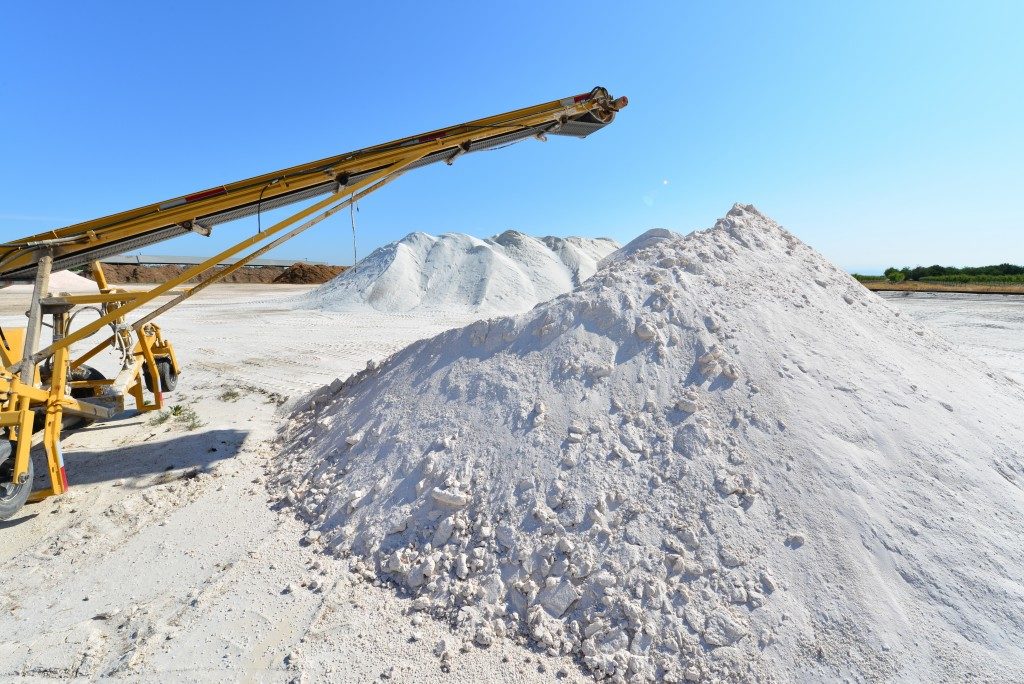Chemicals make our lives easy, especially in terms of doing housework such as cleaning stained areas or disinfecting household items. However, chemicals can also bring drastic damage to your home — more specifically, in house parts that are made of concrete.
When leaked or spilt, flammable chemicals can lead to structural damage by potentially causing fires. Additionally, when exposed to high temperatures, it can induce a structure’s foundation to degrade and eventually collapse. Not only that, but certain chemicals also cause corrosion, erosion, cracking, and disintegration of concrete.
Thankfully, there are multiple preventive measures that you can take to protect your concrete from chemical damage. Here are several examples:
Use appropriate storage
To avoid spills, leaks, or drips, it’s important to make sure that the containers and bottles of chemicals in your house are tightly closed and kept in a dry area that is not exposed to extreme heat. Do not store chemicals near the stove, any kitchen appliance, and heating systems like furnaces.
In addition, verify if the containers you use for keeping chemical products are made of compatible materials to avoid triggering reactions. Some examples are chemical-resistant polypropylene and polyethylene, which are also components of spill pallets and containment bunds — items that are used for transporting and shipping intermediate bulk containers of hazardous substances. Yes, these are mostly used for industrial purposes, but you can also purchase similar household containers that are made of the same materials.
Apply protective coatings
Chemical-resistant concrete can handle and repel harmful acids and chemicals. There are two common types: silicate concrete, which is derived from inorganic acid-resistant polymer concrete, and sulphur concrete, which is a mixture of molten sulfur cement and aggregate.
While it’s best to incorporate materials like chemical-resistant concrete and bricks during construction, especially when your house has already been long built, there’s not much that you can do, right?
Wrong! You can opt for the application of chemical-resistant coatings instead. For instance, you can hire the services of a professional to reconfigure concrete surfaces with a specialized mortar that’s resistant to sulphate. Afterward, an epoxy resin-based protective coating can be applied over the surface of the concrete.

Paint or stain concrete areas
A good coat of concrete paint or stain can help with masking surface discoloration. Moreover, it prolongs the life of concrete through the prevention of further damage. When concrete is coated with paint, it also becomes easier to maintain and clean.
However, painting concrete can be a complex task, so you can hire a professional for guaranteed quality. If you prefer, you may also do it yourself. Be sure to clean the concrete first by scrubbing and brushing it with a trisodium phosphate solution. In addition, select an epoxy-based paint for increased durability. Lastly, apply a protective sealant layer after the paint has dried.
Choose your cleaning products wisely
Check the ingredients of the chemical cleaning products that you buy because certain sulphates like calcium and magnesium can harm concrete over time through repetitive use. Instead, use hot water, degreasers, alkaline cleaners, or homemade mixtures of dishwashing liquid since they effectively combat soot, oil stains, and rust without damaging concrete.
Concrete is a durable and sturdy construction material, but it is not immune to the negative effects of chemicals. By following the guidelines discussed above, you can prevent chemical damage and extend the life of concrete in your home.

